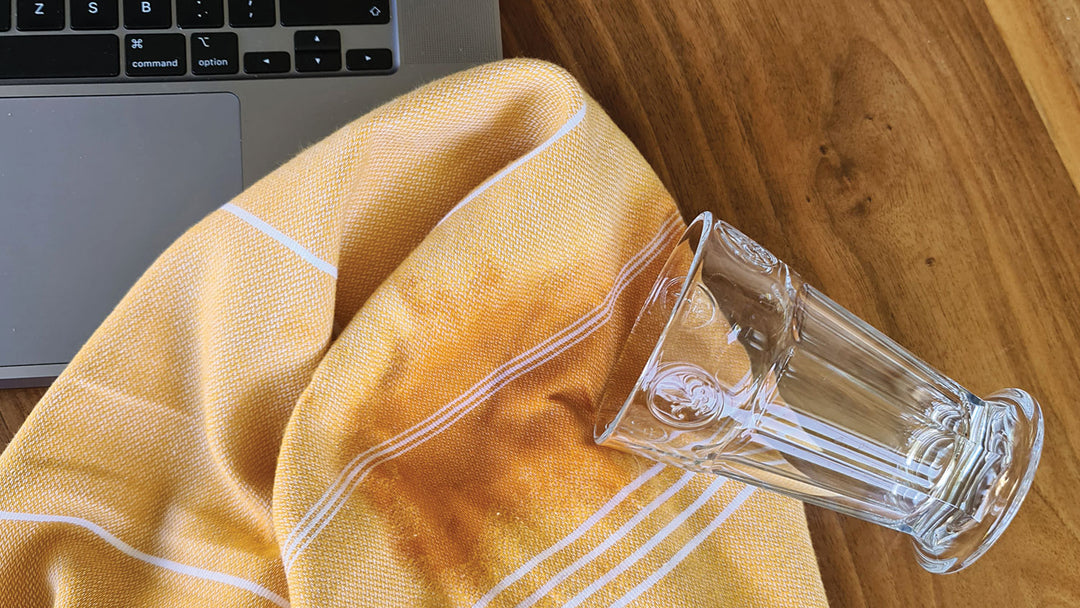Suggestions to Extend the Lifetime of Your Towels
Suggestions to Extend the Lifetime of Your Towels
What is special with the pestemal towels?
Turkish Pestemal towels
A Pestemal towel is an original Turkish bath towel made of looms with Turkish cotton. Pestemals come in various designs, weights, styles, and colors. The most popular type of Pestemals is the classic style that is flat-weaved with a solid, striped design and white fringes on both ends. Turkish cotton is a special type of cotton consists of long cotton fibers that allow Pestemals to get softer with every use.
How to properly care for your Pestemal towels for an extended lifetime?
How to care for your Pestemal?
Before you use your Pestemal towel, you should soak it in cold water for a few hours or overnight before putting to wash in warm water and drying it. It is highly recommended doing gentle wash and line rack drying. (Tip: don’t mix the wash with another laundry that has hooks or zippers that might cause the tassels on your Pestemal to tangle.) The rewash will help speed up the absorbency of the cotton and fluffs up the towels for better use.
How frequently should you wash them?
Most people don't seem to wash them enough though it is suggested that you should wash your towels every 3 days or wash them after the third use. When washing Pestemal towels use cold water and a small amount of detergent as the soapy build-up. Though if you live in an area where it's humid and hot, you should probably wash them more often as this could cause bacteria build up. In addition, it’s a good idea to have a few sets of hand towels so that you have enough to rotate and avoid using your towels too much. Also, it is highly recommended shaking off your towels before drying to fluff up the fiber. Tumble dry at high heat can cause damage to the fabric and overdrying can build brittle threads.
What to do if your Turkish towels have an odor?
Generally speaking, what seems to be the problem with a stench in your towels is usually the cause of build-up scum and bacteria in your washer. What you can do to avoid the smell after having cleaned your washer, hang it. But make sure you hang one towel on each rail or hook, so they can air out.
Absorbency
Fluffy towels feel great, but manufacturers use low-quality yarn to keep their prices low and use false softness by adding softener. Sadly, the chemicals in the softener make these Turkish towels less absorbent. But you're in luck, we have a tip for you which works for all types of towels. Before use, wash your towels in hot or warm water using biological detergent with one cup of vinegar during the rinse. This is very helpful for getting rid of any softener. To keep the absorbency on your towels, wash in this way at least once a month and don't use dryer sheets or fabric softener. Towels could get hard after wash if they build up soapy debris. But you can restore your Turkish towels to their original softness and fluffiness permanently. Use lukewarm water to ensure the detergent dissolves much better leaving your towels residue free.
Folding
If you want your Pestemal towels to be wrinkle-free here's how: First lay your towel flat on the surface and smooth out the wrinkles, start with the long side of the towel and fold the lengths in thirds, grasp the shorter side and fold the towel in half. Repeat this process, and you should end up with a lovely square that will hang well over the rod.
Hanging
Between use, hang your towel to dry and always avoid piling your damp towels into the hamper or on the floor. This can pave the way for mildew and mold to grow. Instead, hang the towel over a rod as this will allow it to hang flat and dry quickly. When towels are hanged on a hook, moisture tends to get caught in the folds. Trapped moisture equals bacteria.
What to avoid
To maintain the superior quality of your towels, stay away from fabric softeners and whitening agents as these cover the natural fibers. You should also keep your Turkish towels away from household cleaners and personal care applications.






